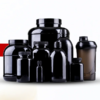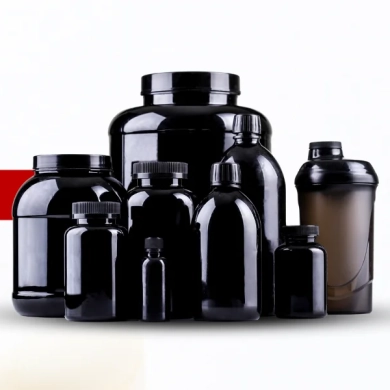Best Supplements for Immune Support: What You Need to Know
In today’s world, maintaining a strong immune system is more important than ever. With the pressures of modern life, from stress to environmental toxins, our bodies face a constant barrage of challenges that can weaken our immunity. Consuming a balanced diet, doing regular exercise, and proper sleep are crucial, but they’re not enough. This is where immune-boosting supplements come into play, offering our body the extra support it needs to fight off infections and to maintain optimal health.
This article will explore the best supplements for immune support, the science behind them, and why they should be a part of our wellness routine.
1. Vitamin C: The Immunity Powerhouse
Vitamin C is perhaps the most well-known immune-boosting supplement. It plays a vital role in protecting the body from infections and can even shorten the duration of illnesses like the common cold. As a powerful antioxidant, vitamin C helps neutralize harmful free radicals, reducing inflammation and improving overall immune function.
Why Vitamin C Matters for Immune Health:
- Stimulates the production of white blood cells which are crucial for fighting infections.
- Enhances the function of phagocytes, a type of immune cell that destroys harmful pathogens.
- Strengthens the skin’s barrier so that viruses and bacteria cannot penetrate into the skin.
Best Sources of Vitamin C:
Best sources of vitamin C are citrus fruits, strawberries, bell peppers, and dark leafy greens. However during cold and flu season, supplementing with 1,000 mg per day can provide a significant boost to your immune defenses.
2. Zinc: The Infection Fighter
Zinc is an essential nutrient that supports the immune system by playing a very important role in the development and function of immune cells such as neutrophils and killer cells. It has been shown to reduce the duration of colds and prevent viruses from replicating, making it one of the best supplements for combating infections.
How Zinc Supports Immunity:
- Regulates the immune response by activating enzymes that control inflammation.
- Promotes the production of antibodies that help your body recognize and fight pathogens.
- Acts as an antioxidant by protecting cells from oxidative stress.
Best Sources of Zinc:
Zinc is found naturally in foods like shellfish, meat, and legumes. When using a supplement, aim for 15-30 mg daily to support immune function, especially during times of stress or illness.
3. Vitamin D: The Sunshine Vitamin
Vitamin D is best known for its role in bone health, but it’s also a critical player in immune function. Studies have shown that people who are deficient in vitamin D are more susceptible to infections, including respiratory illnesses like the flu. Vitamin D helps to modulate the immune system, ensuring that it responds effectively to threats without overreacting and causing excessive inflammation.
Why You Need Vitamin D for Immune Support:
- Enhances the pathogen-fighting effects of monocytes and macrophages, the first line of defense against infection.
- Promotes the production of defensins and cathelicidins, proteins with antimicrobial properties.
- Lowers the risk of respiratory infections by improving the body’s ability to fight off viruses and bacteria.
Best Sources of Vitamin D:
The body produces vitamin D when exposed to sunlight, but factors like indoor living, sunscreen use, and the winter season can limit its production. For most people, taking a supplement of 1,000-2,000 IU of vitamin D3 daily is an effective way to maintain healthy levels year-round.
4. Elderberry: The Ancient Immune Booster
Elderberry has been used for centuries in traditional medicine to treat colds and flu. Modern science backs its effectiveness, showing that elderberry can reduce the severity and duration of cold symptoms. It contains high levels of antioxidants called anthocyanins, which protect the immune system and reduce inflammation.
How Elderberry Enhances Immunity:
- Inhibits the replication of viruses, particularly those responsible for the flu.
- Boosts the production of cytokines, signaling molecules that help regulate the immune response.
- Contains flavonoids, which have powerful anti-inflammatory effects that reduce swelling in mucous membranes.
Best Ways to Take Elderberry:
Elderberry is available in various forms, including syrups, gummies, and capsules. To support immune health, take 500-600 mg daily, especially during cold and flu season.
5. Probiotics: Gut Health for Immune Support
A large portion of the immune system resides in the gut, making probiotics—beneficial bacteria that promote a healthy microbiome—an essential part of immune support. A balanced gut microbiome can help prevent the overgrowth of harmful pathogens and supports the production of antibodies that strengthen the body’s defenses.
Why Probiotics Are Crucial for Immunity:
- Promote the production of IgA antibodies, which help protect mucous membranes from infections.
- Stimulate regulatory T-cells, which modulate immune responses and prevent excessive inflammation.
- Help maintain the integrity of the gut barrier, preventing harmful bacteria from entering the bloodstream.
Best Probiotic Sources:
Probiotics are found in fermented foods like yogurt, sauerkraut, and kefir. When using a supplement, look for a product containing multiple strains of bacteria (such as Lactobacillus and Bifidobacterium) with at least 10-20 billion CFUs (colony-forming units) per dose.
6. Echinacea: The Immune-Boosting Herb
Echinacea is a popular herb known for its ability to stimulate the immune system. It is particularly effective at reducing the risk of colds and respiratory infections. Echinacea increases the activity of white blood cells, which help fight infections, and may reduce inflammation in the body.
How Echinacea Works:
- Enhances the activity of macrophages, which are cells that help the immune system fight off pathogens.
- Reduces upper respiratory symptoms associated with colds and the flu.
- Contains anti-inflammatory compounds that help control cytokine levels, preventing excessive inflammation.
Best Echinacea Supplements:
Echinacea can be taken as a tincture, capsule, or tea. For immune support, look for a supplement that contains 300-500 mg of echinacea extract and take it at the first sign of illness to maximize its effects.
7. Selenium: The Antioxidant Defender
Selenium is a trace mineral that plays a critical role in immune health by protecting the body from oxidative stress. It enhances the body’s response to viral infections and improves the function of the thymus gland, which produces immune cells. Selenium deficiency has been linked to a weakened immune response, making supplementation especially important for those with poor diets.
Benefits of Selenium for Immunity:
- Acts as a powerful antioxidant, protecting cells from damage caused by free radicals.
- Enhances the function of white blood cells, particularly T-cells, which fight infections.
- Boosts the production of cytokines, proteins that help regulate immune responses.
Best Sources of Selenium:
Selenium is found in foods like Brazil nuts, fish, and eggs. For supplementation, a daily intake of 50-200 mcg can support immune function and help protect against viral infections.
8. Garlic: Nature’s Immune Booster
Garlic is well-known for its antimicrobial and antiviral properties. It contains allicin, a sulfur compound that boosts the disease-fighting response of certain white blood cells when they encounter viruses, such as those causing the common cold or flu. Regular consumption of garlic can help enhance immune system function and reduce the severity of illnesses.
How Garlic Supports Immune Health:
- Stimulates white blood cell activity, increasing the body’s ability to fight infections.
- Has antimicrobial properties that help kill harmful bacteria and viruses.
- Reduces the severity and duration of cold and flu symptoms.
Best Ways to Take Garlic:
Fresh garlic is best, but garlic supplements that provide 2,000-3,000 mg of aged garlic extract are also highly effective for supporting immune health.
Conclusion: Prioritizing Immune Health with Supplements
Building and maintaining a strong immune system requires a balanced approach. While a healthy diet and lifestyle are foundational, supplements can provide a significant boost, especially during times when your immune system is under stress or facing seasonal challenges. Whether you’re looking for vitamins, minerals, herbs, or probiotics, the supplements mentioned in this guide offer powerful ways to enhance your body’s natural defenses.
Before starting any supplement regimen, it’s always a good idea to consult with a healthcare professional, especially if you have underlying health conditions or are taking medications.
By incorporating these immune-boosting supplements into your daily routine, you can ensure that your body has the support it needs to stay healthy and resilient.
FAQs
1. How do supplements support the immune system?
Supplements provide essential nutrients like vitamins, minerals, and antioxidants that the body may not get in sufficient amounts through diet alone. These nutrients play a critical role in strengthening the immune system, enhancing the body’s ability to fight infections, and reducing inflammation.
2. Can I take multiple immune-boosting supplements at once?
Yes, many immune-boosting supplements, such as vitamin C, zinc, and probiotics, can be taken together. However, it’s always best to consult with a healthcare provider to avoid potential interactions or excessive intake of certain nutrients.
3. How long should I take immune-boosting supplements?
The duration depends on the supplement and your individual needs. Some, like probiotics, can be taken long-term, while others, like elderberry or echinacea, are best taken during cold and flu season or at the first sign of illness.
4. Are there any side effects to taking immune-boosting supplements?
Most supplements are safe when taken at recommended doses. However, high doses of certain nutrients, like vitamin D or zinc, can cause side effects such as nausea, digestive issues, or headaches. Always follow the dosage instructions on the label or consult a healthcare professional for guidance.
5. What lifestyle changes can complement immune-boosting supplements?
In addition to supplements, maintaining a healthy diet, staying physically active, getting adequate sleep, managing stress, and practicing good hygiene are essential lifestyle factors that can help keep your immune system strong year-round.
If are on a hunt to buy high quality supplements like Berberine Prime, Cut and Ripped and many more, visit humangrowthhormones.com and get your bottle of health supplements today!








Add comment